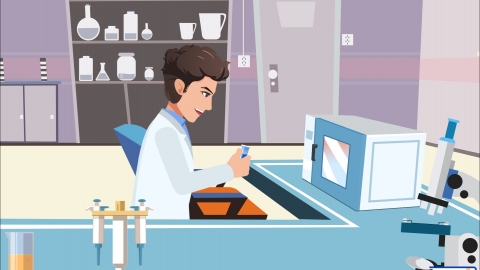What are the causes of false negatives in stool tests?
Generally, the causes of false-negative results in stool tests include dietary effects, drug interference, gastric ulcers, chronic atrophic gastritis, and colon polyps. It is advisable to seek medical attention promptly and follow medical advice for treatment. The specific details are as follows:

1. Dietary effects: Consuming large amounts of vitamin C or other reducing substances before the test may inhibit the reaction of the testing reagents, potentially resulting in a negative outcome even when bleeding is present. It is recommended to avoid foods rich in vitamin C and iron to ensure the accuracy of test results.
2. Drug interference: Medications such as anticoagulants and vasoconstrictors may interfere with the results of fecal occult blood tests. Anticoagulant drugs can inhibit the synthesis and activity of clotting factors, leading to blood clotting disorders and subsequent bleeding, thereby affecting the occult blood test results. Before undergoing a fecal occult blood test, it is important to inform the doctor whether you are taking any medications that may affect the test results.
3. Gastric ulcer: Gastric ulcers can cause damage to the gastric mucosa, resulting in minor bleeding. However, due to the small amount of bleeding, the stool routine examination results may not appear abnormal, which can lead to a false-negative result for fecal occult blood. Abdominal pain may also be present. It is recommended to follow medical advice and use medications such as omeprazole enteric-coated tablets, lansoprazole tablets, and pantoprazole enteric-coated tablets to reduce gastric acid secretion.
4. Chronic atrophic gastritis: Patients with chronic atrophic gastritis may experience inflammatory responses and atrophic changes in the gastric mucosa, which can lead to minor bleeding. However, due to the small amount of bleeding, the stool routine examination results may not appear abnormal, presenting as a false-negative occult blood result. Upper abdominal discomfort may also be present. Under a doctor's guidance, medications such as amoxicillin capsules, domperidone tablets, and esomeprazole magnesium enteric-coated tablets can be used to reduce inflammation and promote gastrointestinal motility.
5. Colon polyps: Colon polyps are elevated lesions of the colonic epithelium, and bleeding may occur when the surface of a polyp becomes ulcerated. However, the amount of bleeding is generally small, which may lead to a false-negative occult blood result during a stool routine examination. Diarrhea may also be present. Under medical guidance, endoscopic polypectomy can be performed. This procedure involves direct visualization and removal of the polyps via endoscopy, preventing further growth and potential malignancy.
When undergoing a fecal occult blood test, it is important to fully consider the impact of these factors on the test results and take appropriate measures to ensure the accuracy of the findings.






